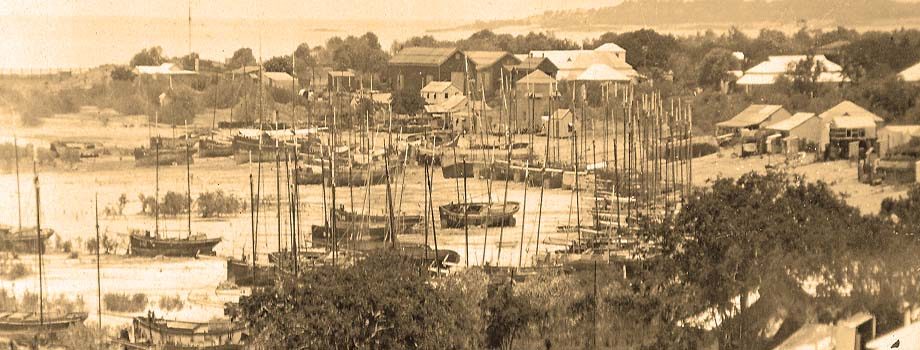In August 1914 Broome was in the midst of a busy pearling season. Pearling was the fourth largest industry in Western Australia and pearl shell had hit a record high of £335 per tonne in 1912. Money was flowing into the town.
When Britain declared war with Germany the demand for pearl shell dropped as Britain’s economy was hurriedly restructured to meet the needs of the war and London’s pearl shell market closed. Wanting to help the war effort, men in Broome flocked to enlist and the town was left with insufficient numbers to maintain its pearling fleets. The security of shipments heading overseas was threatened by enemy vessels and as a result tonnes of shells were left to rot in Broome sheds.

Pearling Masters who had expected to borrow money from the banks to pay their crews found that their contracts with buyers had been cancelled, and no credit was extended. Over 1000 indentured workers were stranded in Broome with no money to pay their passages home. The Mayor of Broome pleaded for financial aid from the State Government:
‘If Broome cannot get a guarantee of shell then the government would have to come forward with ships and stores and feed and carry away the population in addition to the imported seamen in respect of each whom the government holds a 100 pound bond. At present cash is required for everything and the stocks are not being replenished as usual.’
A deal was finally struck that saw the price of mother of pearl guaranteed from £125 per tonne for the remainder of the war.
Click here to go to Broome Boys at the Front
